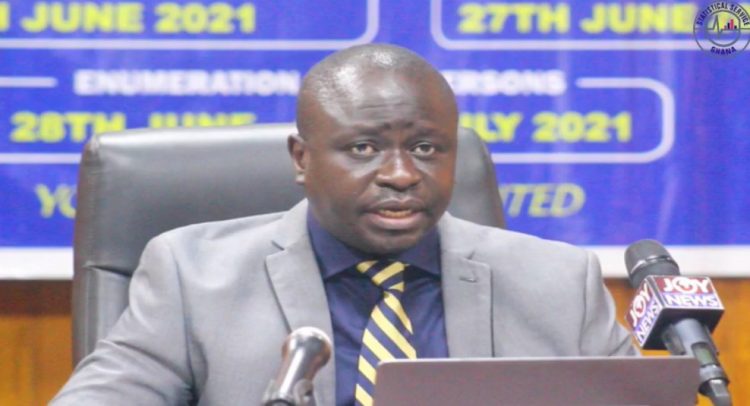Prof Samuel Annim
The Ghana Statistical Service says 99.4 percent of Ghanaian households have been enumerated in 15 regions.
Greater Accra reached a completion rate of 98 percent at the end of this year’s Population and Housing Census.
Professor Samuel Kobina Annim, Government Statistician, announcing this on Wednesday at a press briefing in Accra, said data collection for the exercise had officially ended after it was extended for the third and final time from August 1-8, 2021.
The 2021 PHC officially commenced on Sunday, June 27 with the listing of structures starting on Sunday, June 13, 2021
The first extension started from Monday July 12-18, while the second one started from Monday July 19 to July 31.
He stated that the reasons for the less than 1 percent outstanding of the national coverage completion included pockets of refusals to participate in the exercise, arrears with restricted access ie; gated communities and foreign communities.
Prof Annim said the Ghana Statistical Service had commenced Post Enumeration Survey with training of Field Officers for data quality and that subsequent processing of payment was ongoing and expected to end on August 25, 2021.
He said the data collection exercise would start from August 25 to September 14, 2021, for all the regions with 91 districts and 498 enumeration areas.
The Census Call Centre, he said, was still active and urged the public to call on toll free numbers: 0800426426, 0591476895, 0206850157, 0591476893, 0591476884, 0206850157, and 0551625567 for any assistance.
Prof Annim commended the public for their participation in the Census data collection and their cooperation and support during the exercise.
The 2021 PHC will provide important information to support evidence-based implementation of the national development agenda and support the tracking of achievements of the Sustainable Development Goals and Agenda 2063 of the African Union, among others.
It sought to gather information on key issues, including travel history of household members who have migrated abroad, Socio-demographic characteristics, literacy and education, economic activity.
By Annie Wharton Savage


